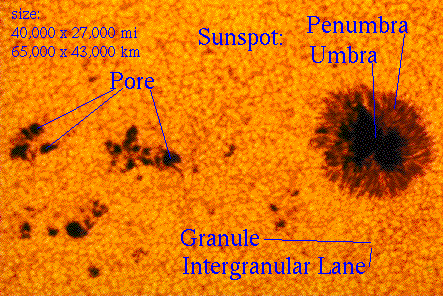Total Solar Irradiance (TSI)
Total Solar Irradiance is the amount of sunshine hitting the Earth's atmosphere at any given time. Version 2.0 of the Climate Scientist Starter Kit includes monthly TSI values taken from three satellites at three different frequencies. This data extends from February, 1996 to October, 2009.
Total Solar Irradiance (TSI)
Sunspots
Version 1.5 of the Climate Scientist Starter Kit already has Sunspot Group data. Version 2.0 adds Sunspots. This data extends from January, 1749 to January, 2010.
Sunspots
Regional Cosmic Rays
Regional Cosmic Rays have been added to the existing Cosmic Ray data of version 1.5. With this added data, there is now at least one cosmic ray measurement for every region used by UAH when it publishes temperatures: Northern Hemisphere, Southern Hemisphere, Tropics, Northern Extra Tropics, Southern Extra Tropics, North Pole, South Pole, and the 48 U.S. continental states.
Thule, Greenland (North Pole Region)
Swarthmore, Pennsylvania (U.S. 48 States, Northern Extra Tropics)
Climax, Colorado (U.S. 48 States, Northern Extra Tropics)
Haleakala, Hi (Tropics)
Hauncayo, Peru (Tropics)
Hermanus, South Africa (Southern Extra Tropics)
McMurdo, Antarctica (South Pole)
South Pole (South Pole)
McMurdo, Swarthmore, South Pole, Thule, Cosmic Rays
Previous Posts In This Series:
Climate Scientist Starter Kit v2.0 Coming
Climate Scientist Starter Kit v2.0 Coming, Part II: Regional Data
Climate Scientist Starter Kit v2.0 Coming, Part III: Ozone And Pressure

















No comments:
Post a Comment